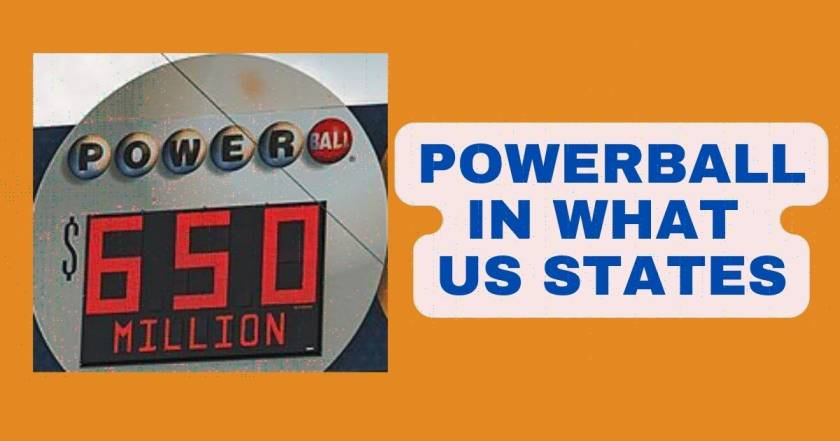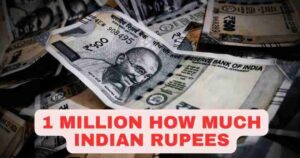The Powerball lottery is a widely played multi-state game in the United States, operated by the Multi-State Lottery Association (MUSL), an organization comprising various U.S. lotteries.
The Powerball lottery has deeply ingrained itself into American culture, captivating the imaginations of countless individuals who yearn for an opportunity to make their dreams come true. The game’s immense jackpots, the excitement of televised drawings broadcasted nationwide, and its widespread availability in multiple states have all played significant roles in maintaining its enduring popularity.
However, alongside its popularity, the debate surrounding the social and economic consequences of lotteries persists. Supporters argue that the revenue generated from lottery sales leads to increased funding for essential state programs, thereby benefiting society as a whole. They view it as a form of entertainment that offers hope and the chance for a better life.
Conversely, critics voice concerns over potential risks associated with excessive gambling behaviors that can arise from the allure of the lottery. They worry about the disproportionate impact on lower-income individuals, who may be more susceptible to spending a significant portion of their income on tickets in pursuit of the elusive jackpot. Such concerns highlight the importance of promoting responsible gaming practices.

What States is Powerball In
- There are 48 US states participating in the Powerball lottery. Participating states and jurisdictions offer Powerball tickets to their residents, allowing them the chance to win substantial cash prizes.
States that choose to be part of Powerball sell tickets to players, with the revenue contributing to the prize pool and leading to the accumulation of significant jackpots. It’s important to note that the list of participating states can change over time, as new states may join or existing ones may decide to withdraw based on their individual regulations and preferences.
| Lottery | Powerball |
|---|---|
| Arizona | April 4, 1994 |
| Arkansas | October 31, 2009 |
| California | April 8, 2013 |
| Connecticut | November 28, 1995 |
| Colorado | August 2, 2001 |
| Delaware | January 14, 1991 |
| District of Columbia | February 13, 1988 |
| Florida (flagship lottery) | January 4, 2009 |
| Georgia | January 31, 2010 |
| Idaho | February 1, 1990 |
| Illinois | January 31, 2010 |
| Indiana | October 14, 1990 |
| Iowa | February 13, 1988 |
| Kansas | February 13, 1988 |
| Kentucky | January 10, 1991 |
| Louisiana | March 5, 1995 |
| Maine | July 30, 2004 |
| Maryland | January 31, 2010 |
| Massachusetts | February 3, 2010 |
| Michigan | January 31, 2010 |
| Minnesota | August 14, 1990 |
| Mississippi | January 30, 2020 |
| Missouri | February 13, 1988 |
| Montana | November 9, 1989 |
| Nebraska | July 21, 1994 |
| New Hampshire | November 5, 1995 |
| New Jersey | January 31, 2010 |
| New Mexico | October 20, 1996 |
| New York | January 31, 2010 |
| North Carolina | May 30, 2006 |
| North Dakota | March 25, 2004 |
| Ohio | April 16, 2010 |
| Oklahoma | January 12, 2006 |
| Oregon | February 13, 1988 |
| Pennsylvania | June 29, 2002 |
| Puerto Rico | September 28, 2014 |
| Rhode Island | February 13, 1988 |
| South Carolina | October 6, 2002 |
| South Dakota | November 15, 1990 |
| Tennessee | April 21, 2004 |
| Texas | January 31, 2010 |
| US Virgin Islands | November 14, 2010 |
| Vermont | July 1, 2003 |
| Virginia | January 31, 2010 |
| Washington | January 31, 2010 |
| West Virginia | February 13, 1988 |
| Wisconsin | August 10, 1989 |
| Wyoming | August 24, 2014 |
Powerball Lottery in US
The Powerball lottery is one of the most popular and widely recognized lottery games in the United States. It is a multi-state game coordinated by the Multi-State Lottery Association (MUSL), a non-profit organization formed through an agreement among various U.S. lotteries. The game’s inception can be traced back to April 1992 when it was first introduced as an expansion of the existing Lotto America game.
The main appeal of Powerball lies in its massive jackpots, which often reach hundreds of millions or even billions of dollars. This significant prize potential attracts millions of players from across the country, all hoping for a life-changing win. The record for the largest Powerball jackpot was an astonishing $1.586 billion in January 2016, shared by three ticket holders from California, Florida, and Tennessee.
To participate in Powerball, players must purchase tickets, which typically cost $2 each. Players select five main numbers from a pool of 69 white balls and one additional number, known as the Powerball, from a separate pool of 26 red balls. To win the jackpot, the player must match all five main numbers and the Powerball. However, there are multiple prize tiers, and players can win smaller amounts by matching various combinations of numbers.
The drawing for the winning numbers takes place twice a week, usually on Wednesdays and Saturdays, at a designated location. These drawings are nationally televised, generating excitement and anticipation among players as they watch the balls being drawn live.
The revenue generated from Powerball ticket sales is allocated to various purposes, depending on the participating state. A significant portion of the revenue goes toward the prize pool, ensuring that large jackpots can be offered. Additionally, funds from lottery sales often contribute to education, public infrastructure, and other state programs, as mandated by state legislation.
Which US States Doesn’t Participate
- Five U.S. states, namely Alabama, Alaska, Hawaii, Nevada, and Utah, do not participate in the Powerball lottery.
In the states without Powerball, residents miss out on the opportunity to participate in this particular game and its potential rewards. Instead, they may choose to engage in other available lottery games or may not have access to state-operated lotteries at all.
History of Powerball Lottery
The Powerball lottery has a fascinating history that began in the late 1980s with the concept of a multi-state game offering larger jackpots to captivate the public’s interest. It all started with a lottery game called Lotto America, introduced in 1988, which involved players selecting six numbers from a pool of 40.
In April 1992, Lotto America was rebranded as Powerball with several important changes to the game’s format. Players now had to choose five numbers from a pool of 45 white balls and one additional number (the Powerball) from a pool of 45 red balls. This alteration increased the odds of winning smaller prizes while making the jackpot more challenging to attain.
Powerball’s first drawing took place on April 22, 1992, initially being offered in 15 states. However, more states soon joined, and the game’s popularity grew steadily. By September 2021, Powerball was available in most U.S. states, the District of Columbia, Puerto Rico, and the U.S. Virgin Islands.
A significant milestone in Powerball’s history occurred on January 13, 2016, when it set a world record for the largest lottery jackpot ever awarded— an astonishing $1.586 billion, shared among three fortunate ticket holders.
Throughout its existence, Powerball has evolved with various rule changes, ensuring it remains an exciting and relevant game. Adjustments to the jackpot structure, ticket prices, and the introduction of features like the Power Play option have contributed to its ongoing popularity.
The Powerball lottery’s enduring appeal lies in its ability to captivate the public’s imagination with its promise of life-changing jackpots. Its impact on American culture, the excitement of its televised drawings, and the hopes and dreams of winning big have solidified Powerball’s position as one of the most iconic and beloved lottery games in the United States.








